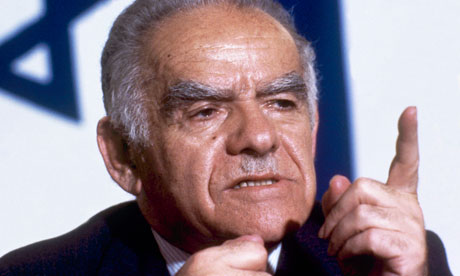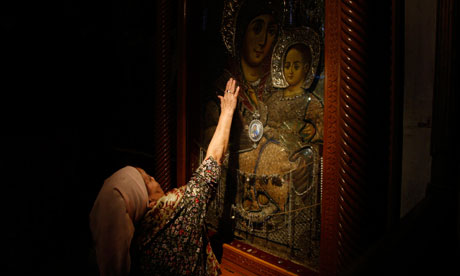EDITOR: Rest assured, the next war is coming soon…
It has been some time since Israel has initiated a fresh war – an unusual situation, you would agree. So, worry no more – Israel is preparing for the next round. Apart from the attack on Iran, always around the corner, they are now gearing up for another attack on Lebanon – after all, they have not destroyed Lebanon since 2006, so another destructive war must be due. What a world we live in, in which this aggressive and arrogant state can attack just about anyone with total impunity?
Senior IDF officer: Israel is preparing for the next Lebanon war: Haaretz
Officer says instability in Syria could ignite violent confrontation with the Lebanese army, says ‘Goldstone report will pale in comparison to what will be here next time.’
By Gili Cohen | Jul.05, 2012

Six years after the outbreak of the Second Lebanon War, the IDF is saying openly that Israel is preparing for another Lebanon war.
The commander of the IDF’s 91st Division, Brigardier-General Hertzi Halevy told journalists on Thursday, “We understand that there is more than one factor, whether this is Lebanese, or whether it will come from somewhere else, that can ignite the border here.”
The 91st Division, part of the Northern Command, and responsible for the front with Lebanon, sees developments in Syria as one of the factors that could upset the calm that has prevailed in the region since the war. The collapse of the Syrian regime may also bring with it an increase in Jihadi or Hezbollah operatives, who may try to carry out targeted attacks in the area.
Already, Northern Command intelligence says certain areas of the border between Lebanon and Syria are “lawless zones,” which enable the transfer of more advanced weapons into the region. The IDF has stated that there are some 60 thousand missiles in Lebanon, ten times more than there were in the country during the first Lebanon war. Hezbollah has the capability to launch a large quantity of rockets in a short period time, and this could cause significant damage on the Home Front.
In IDF simulations of what a third Lebanon war would look like, ground maneuvers in villages that are considered bastions of Shiite Hezbollah become particularly important. “The next war will be different, and therefore we should stop it as quickly as possible, in order to make things easier for the home front. This means carrying out a very strong attack against Lebanon, and the damage will be enormous,” says a senior officer in the Northern Command.
“The Goldstone report will pale in comparison to what will be here next time. There is no choice but to fight against the enemy where he is, and that is in the heart of a populated area. ”
Despite Halevy’s warnings against Hezbollah violence in the north, the majority of violent incidents have actually been taking place on the initiative of the Lebanese army, which has aimed its arms at the IDF. Only last week an unusual incident occurred on the Hasbani River, near Ghajar. A group of eight soldiers, who were on patrol in the area with the company commander, identified five fighters from the Lebanese Army, together with RPG launchers and snipers. In a subsequent investigation, a tracker reported that a commander from the Lebanese force had instructed his fighters to harm IDF soldiers. In response, the IDF advanced the tank force in the area as a cover, sending a strong message to the UNIFIL force in the area that the IDF would respond harshly in case of any fire from the Lebanese army.
In practice, the forces serving in the region must practice restraint: Official policy dictates that the IDF must not open fire first, except for extenuating circumstances. Nevertheless, recent violent events have occurred only with the Lebanese army, and not with Hezbollah.
“When things happen with the Lebanese army, it is preferable to solve them with an M16, and not with F-16s,” a senior official in the area explained.
The Northern Command point out that reconstruction work in Bint Jbeil, the site of a major battle during the 2006 war, was only completed a few months ago. The next confrontation, they point out, will cause even more damage. In the event that the situation would erupt, said Halevy, “the IDF is preparing seriously and professionally for another Lebanon war. The response will need to be sharper, harder, and in some ways very violent. The next war will be with very heavy exchanges of fire on both sides, and so both need to make every effort to stop this happening. In the Goldstone Report, the community and the world tended to get confused and think that this can be done in a nicer way. It cannot be nice. Without the use of great force, we will find it difficult to achieve the aim, and the enemy should also know that. ”
Presbyterian Church in U.S. votes to boycott Israeli settlement goods: Haaretz
Move comes a day after Presbyterian General Assembly narrowly voted down a proposal to divest from three companies that do business with Israel.

On Friday, divestment supporters in the the Presbyterian General Assembly received some good news as the assembly passed a resolution to boycott settlement goods (“Ahava” cosmetics and “Hadiklaim” products), and also voted to accept a recommendation to create an option for individual pension holders not to chose to invest in Caterpillar, Motorola, and Hewlett Packard stock, as “choice of conscience” – to be voted on at the next General Assembly in 2014.
Sydney Levy, Jewish Voice for Peace Director of Advocacy congratulated the Presbyterian Church (USA) for its decision: “This vote signifies the mainstreaming of boycott as a way to oppose illegal Israeli settlements, and the Israeli occupation overall. This accomplishment is despite heavy-handed fear-mongering by the Jewish establishment that included threatening the future of interfaith cooperation and raising the specter of anti-semitism. The truth is, growing numbers of Jewish groups and individual Jews of conscience support some form of boycott and/or divestment as a strategic tactic to pressure Israel to end the human rights abuses of the 45-year-old occupation of Palestinian people and land.”
On Thursday. the Presbyterian General Assembly. the largest Presbyterian group in the United States, voted narrowly to defeat a proposal to divest from three companies that do business with Israel. After an hours-long debate that took place late Thursday, the assembly voted 333-331, with two abstentions, to reject the divestment plan.



